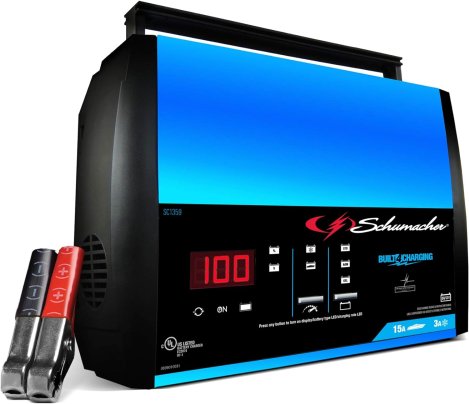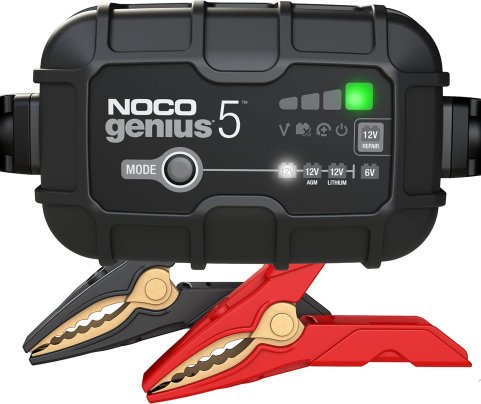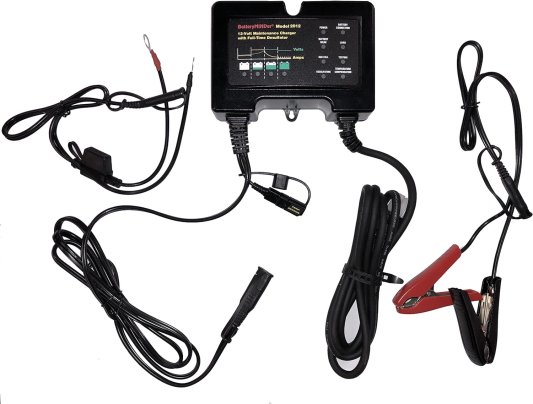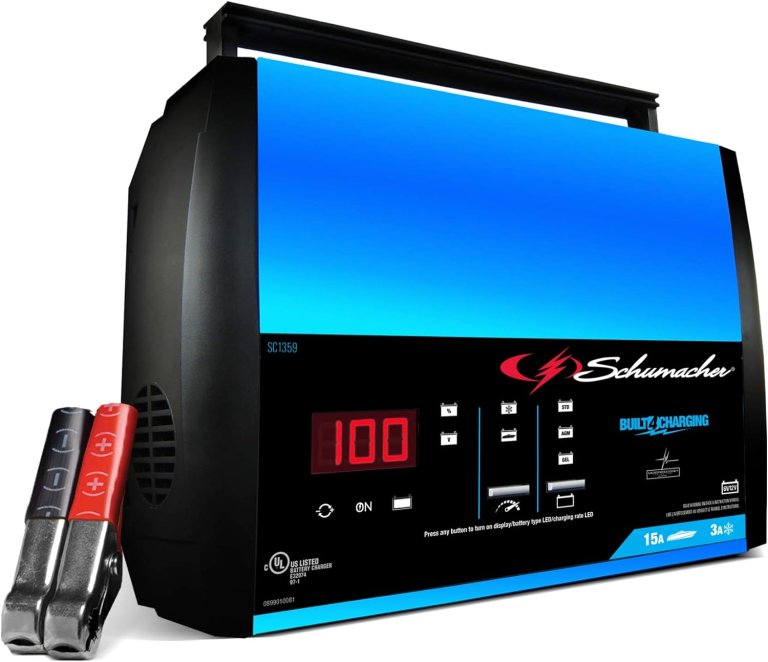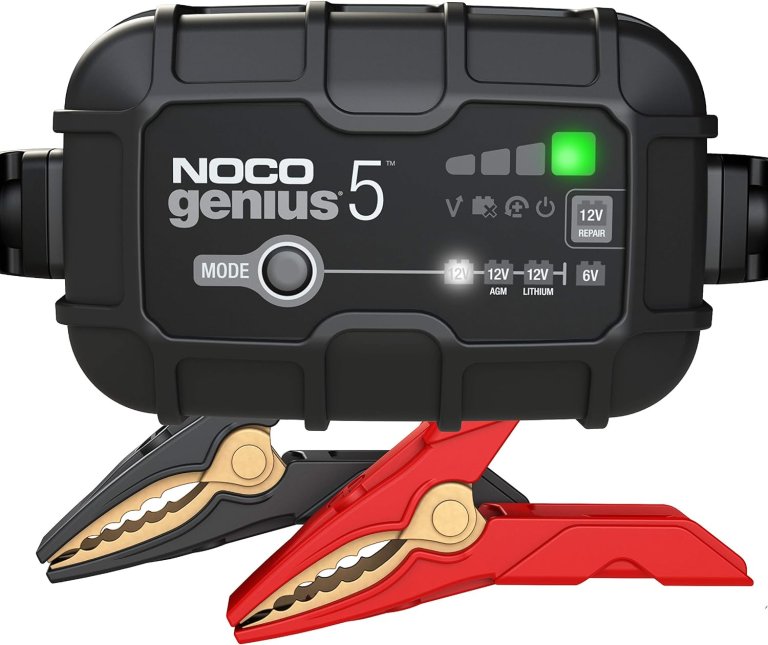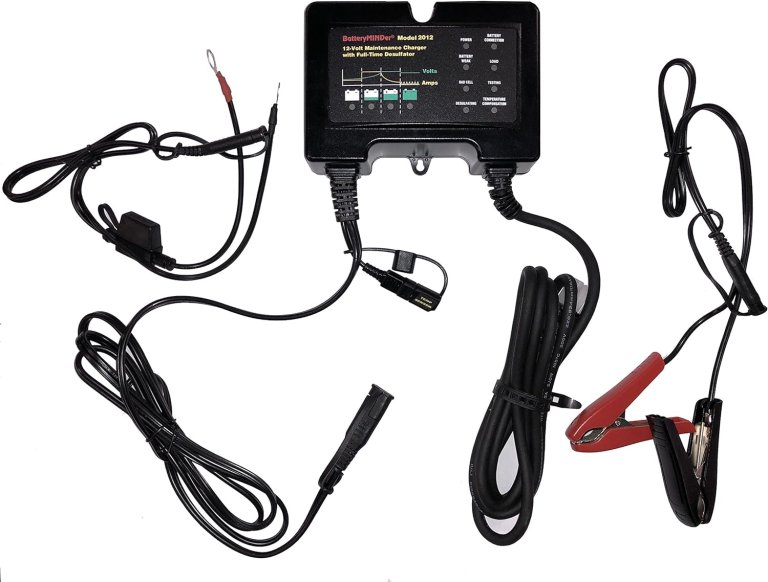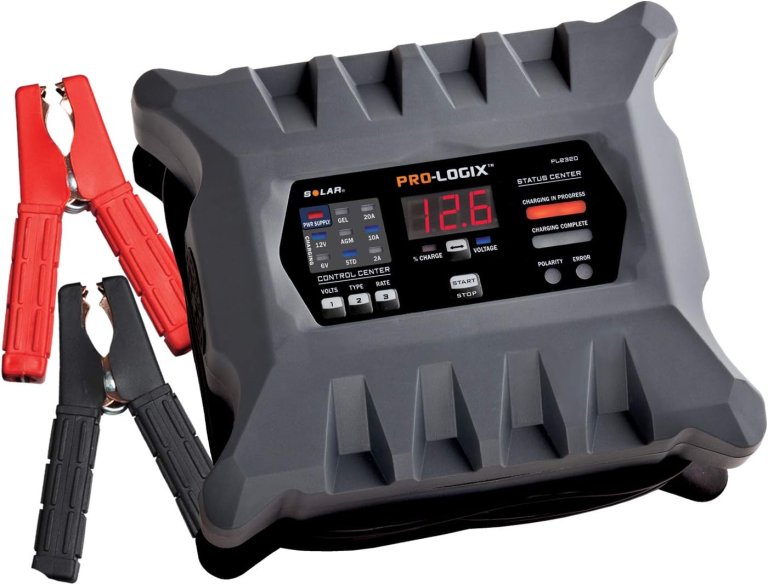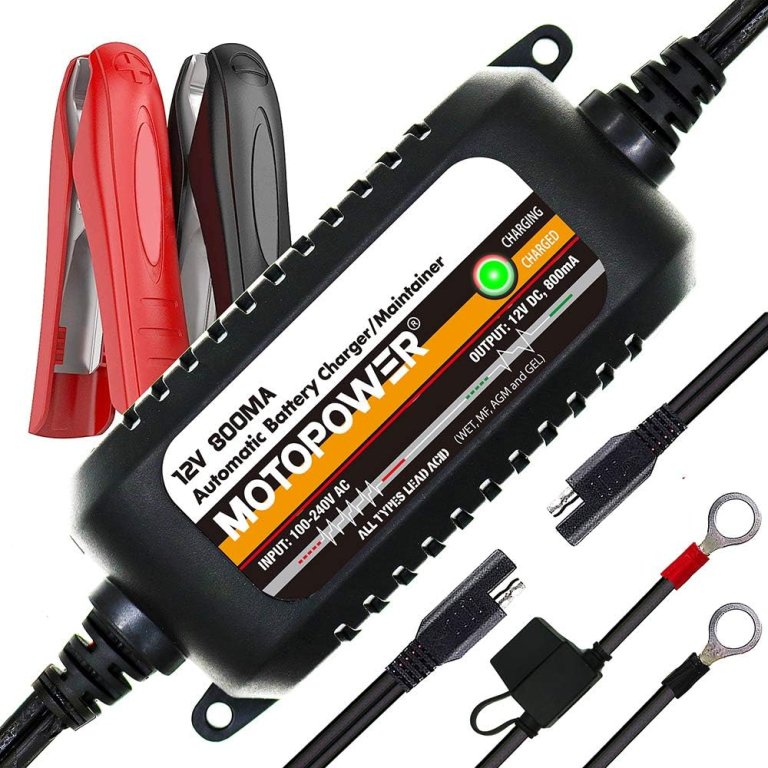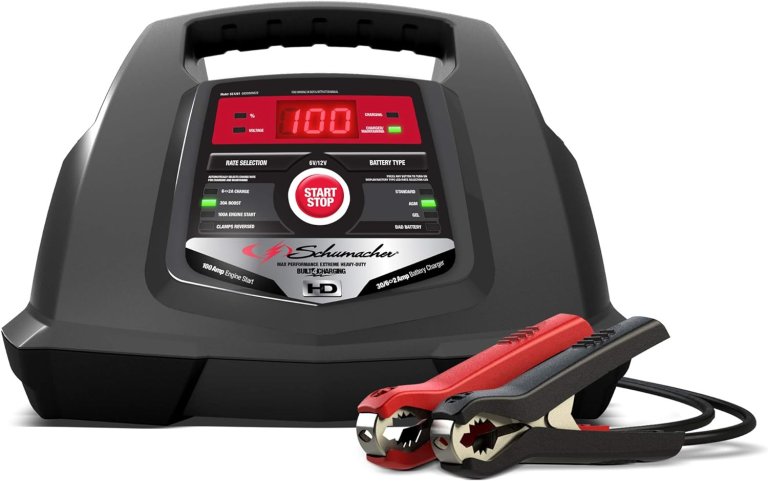We may earn revenue from the products available on this page and participate in affiliate programs. Learn more ›
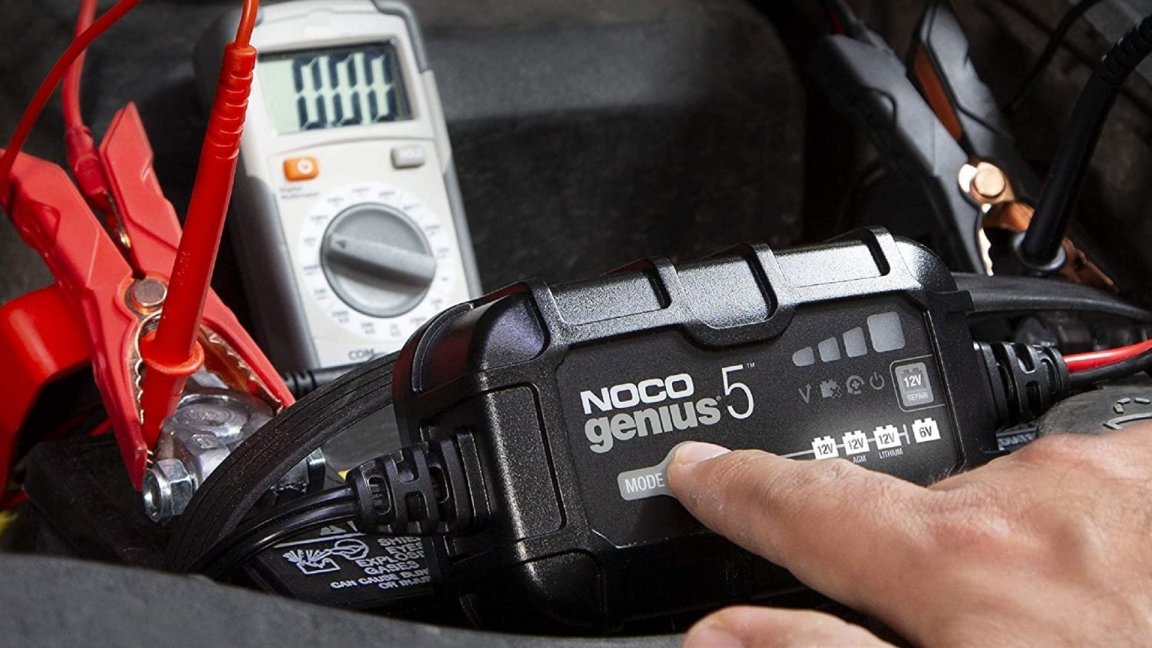
We’ve all had an old car battery fail us, sitting there unable to be revived with a recharge. Over time, your vehicle’s battery can degrade thanks to sulfation, developing a buildup of lead sulfate crystals that make the battery increasingly ineffective. But you don’t have to sit around and wait for the day your car battery fails for good. If you own a battery desulfator, you can lengthen its lifespan and enjoy even more miles on the road. Plug your car battery into a desulfator and you’ll enhance its effectiveness even as it ages. With plenty of different types of battery desulfators available to choose from, you just have to pick one that’s suited for your vehicle and your needs. We’ve done the hard work for you and selected some of the best to browse right here.
Summary List
- Best Overall: Schumacher SC1359 Fully Automatic Battery Charger
- Best Value: Noco Genius 5 Fully-Automatic Smart Charger
- Honorable Mention: BatteryMINDer Model 2012
- Most User-Friendly: Clore Automotive PL2320 20-Amp Fully-Automatic Smart Charger
- Best Compact: MotoPower MP00205C 12V 800mA Automatic Battery Charger
- Most Comprehensive: Schumacher SC1281 100 Amp 30 Amp 6V/12V Fully Automatic Smart Battery Charger
Our Methodology
Our product selections, rankings, and awards for this story are based on research. While we haven’t conducted real-world testing on all of these products yet, we’ve looked at consumer testimonials and data, tutorials, and general discussions on social media and in forums. We also consider price and specification in the context of the segment. And, of course, we rely on our institutional knowledge of the automotive landscape to weed out weak products.
Best Battery Desulfators Reviews & Recommendations
Best Overall
Schumacher SC1359 Fully Automatic Battery Charger
Check Latest PriceBest Value
NOCO Genius5 Fully Automatic Battery Charger
Check Latest PriceHonorable Mention
BatteryMINDer Model 2012
Check Latest PriceMost User-Friendly
Clore Automotive Battery Charger, Maintainer, and Desulfator
Check Latest PriceBest Compact
MotoPower Battery Charger, Maintainer, and Desulfator
Check Latest PriceMost Comprehensive
Schumacher SC1281 100 Amp 30 Amp 6V/12V Fully Automatic Smart Battery Charger
Check Latest PriceOur Verdict on the Best Battery Desulfators
Our pick for the best battery desulfator is the BatteryMINDer Model 2012, which offers great features and is easy to use whether you’re hoping to restore one battery or multiple batteries simultaneously. But you’ll also find that the NOCO Genius5 Fully Automatic Battery Charger, Maintainer, and Desulfator is a great product — and its affordable price makes it a good value. Which battery desulfator is your favorite?
What to Consider When Buying Battery Desulfators
Types of Battery Desulfators
Battery Desulfators
Battery desulfators are pretty straightforward as they’re devices that are designed to remove the lead sulfate crystals that form over time inside your battery, bringing its reliability and performance down. When you connect your battery to a desulfator, it works to eliminate those crystals and any buildup present to restore its efficiency and power. These devices are one-purpose products, meaning they work as desulfators and only as desulfators.
Battery Chargers, Maintainers, and Desulfators
If you’re looking for a more comprehensive battery maintenance device, then you can opt for a battery desulfator that’s also a charger and maintainer. These products, which are typically just called battery chargers, maintainers, and desulfators, offer three modes of function. They’ll charge depleted batteries, maintain those batteries via a trickle charge, and work to remove sulfates. Typically, these types of devices work automatically to perform whichever of those three tasks your battery needs.
Battery Desulfator Key Features
Battery Compatibility
Before you can use a battery desulfator, you’ve got to make sure it’s actually suitable for use with your car’s exact battery. Fortunately, this is super simple, as most battery desulfators work with a wide range of 12-volt batteries, and your car is very likely powered by a 12-volt battery (along with other vehicles, like ATVs).
So, when you’re shopping for a battery desulfator, make sure you’re only considering those that work with a 12-volt battery. You should also check the type of battery your car uses (AGM, flooded, gel cell, deep-cycle, or lithium-ion, for example) and make sure that the desulfators you’re looking at are compatible. While plenty of desulfators do work with any battery type, others can be a bit more limited.
Charging and Maintaining
Sure, a basic battery desulfator offers everything you need to remove those lead sulfate crystals in an old battery. But why settle for basic when you can get so much more from a single device? If you opt for a desulfator that also works as a battery charger and maintainer, you’ll get so much more functionality for your investment.
When you opt for a battery charger, maintainer, and desulfator, you’ll be able to keep your battery in tip-top shape from all sides. You can recharge the battery when its voltage drops, maintain it if necessary, and keep those sulfates from ruining reliability or efficiency, all with one convenient device. Now that’s a versatile product.
Temperature Compensation
You might not think your battery is very sensitive to temperature, but it is, especially if you’re dealing with high heat or freezing cold. And when you’re using a battery desulfator (or a combination charger, maintainer, and desulfator), the ambient temperature can affect the results. That’s why it’s a good idea to look for a product that offers temperature compensation, or automatic temperature adjustment. If the temperature changes, reaches extreme highs or extreme lows, or becomes problematic in any way, your desulfator will be able to adapt to continue providing the reliable service you need.
Battery Desulfator Pricing
Battery desulfators can cost as little as $20 up to about $100. On the lower end of the scale, you’ll generally find limited-purpose units. For the most part, battery desulfation is one function of a multi-functional battery charger or maintainer. How many more features and the quality of the tool is what will largely determine how much you pay.
FAQs
You’ve got questions. The Drive has answers.
It depends on the efficiency of your desulfator and the amount of sulfate that has formed on the battery. Keep your battery charging until you see a significant improvement. Sometimes the process takes up to a week.
Most battery desulfators do work on AGM batteries, but you’ll want to check the specifications of the exact devices you’re considering. While AGM is a common compatibility, some desulfators might not cover them.
Plenty of battery desulfators do work on deep-cycle batteries but just like with AGM batteries, you’ve got to double-check the specs on any desulfator you’re thinking about buying. While it’s common, not all desulfators may work with deep-cycle batteries.
You can check to see if your battery is sulfated in one of two ways. If you’re noticing signs of decreased battery efficiency — like a battery that’s not charging as well as it once did or one that isn’t charging at all — you likely have lead sulfate crystals present. Batteries that won’t hold a charge and electronics that aren’t functioning properly, like weak AC or dimming headlights, can also be signs. Or, you can take a look under the hood and check your battery for visible signs of sulfation. You’ll have to open your battery up, but if you see gray, grimy, and not-so-clean lead cells inside your battery, that’s sulfation.
